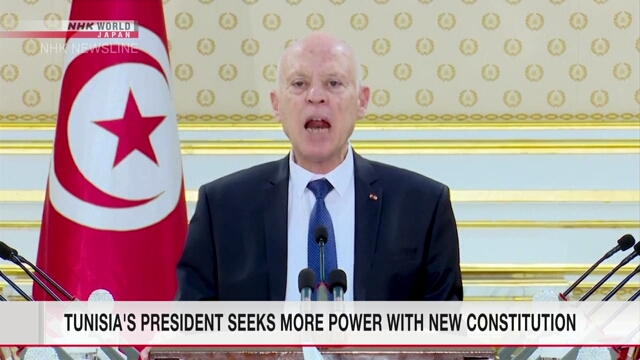
The Tunisian president has proposed a draft of a new constitution that would increase his powers.
The proposed constitution was unveiled on Thursday. It says the president can appoint a prime minister without parliamentary approval. It also says political power will be exercised solely by the president, not by the parliament as it is now.
President Kais Saied has increased his grip on power since taking office three years ago. He suspended parliament in July last year and has taken other measures which he said were necessary for the country to recover from political and economic turmoil.
The moves have drawn criticism from opposition parties and the public. They say the president is running counter to Tunisia’s democracy-oriented spirit.
The nation’s former autocratic government collapsed in 2011 following public protest. The uprisings spread to other Arab nations, leading to the fall of authoritarian regimes in countries including Egypt and Libya. The movement was called the Arab Spring.
Tunisia is viewed as the only success story of the Arab Spring. Other countries such as Syria and Yemen are marred by civil conflict.
Voters will be asked to approve the new constitution in a referendum on July 25.